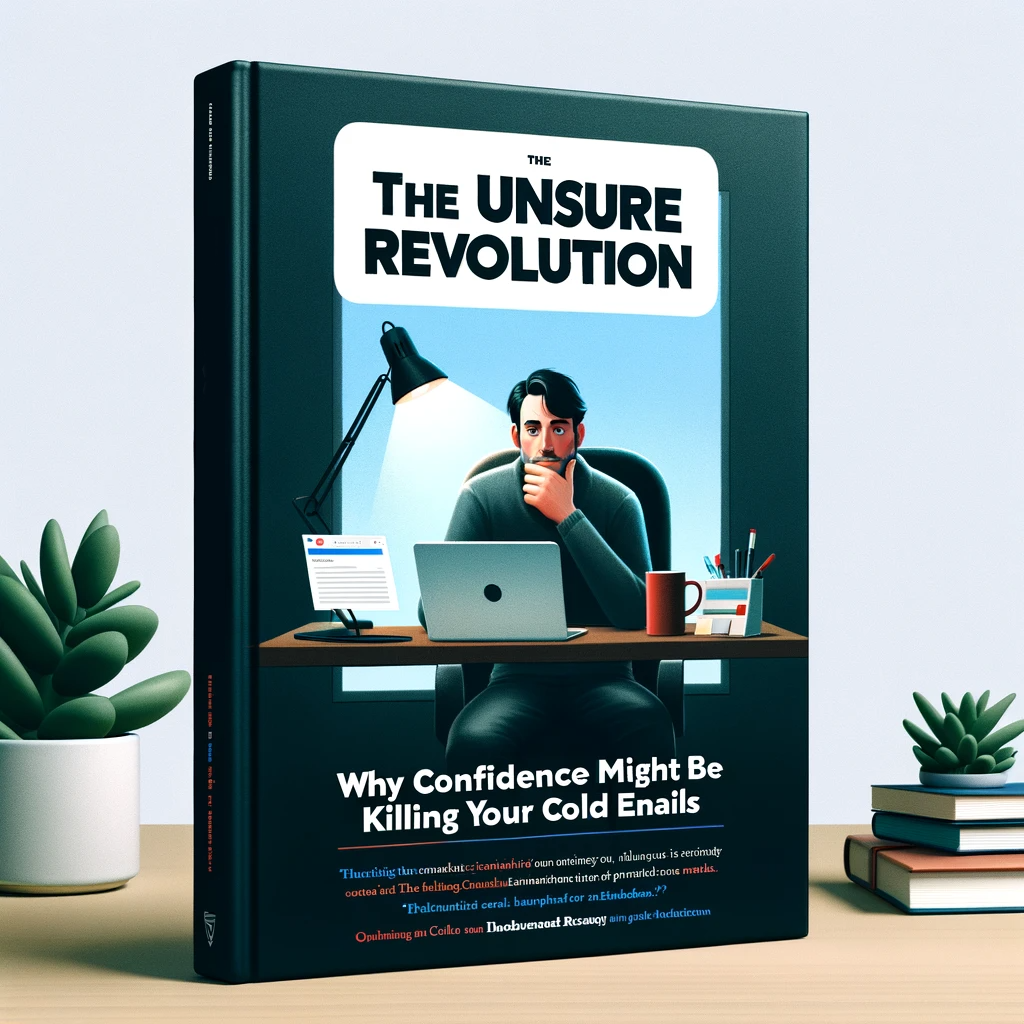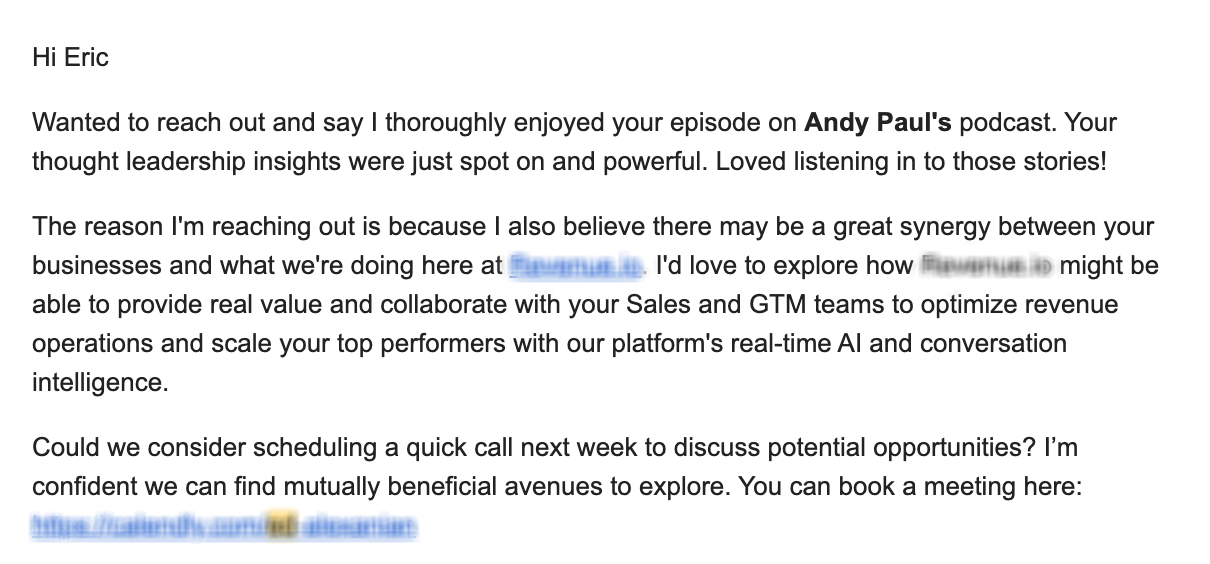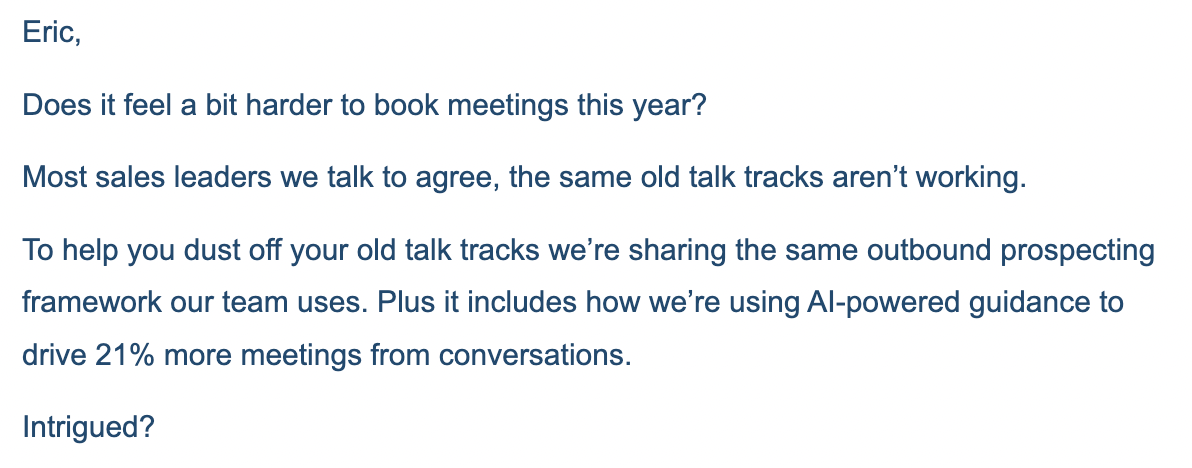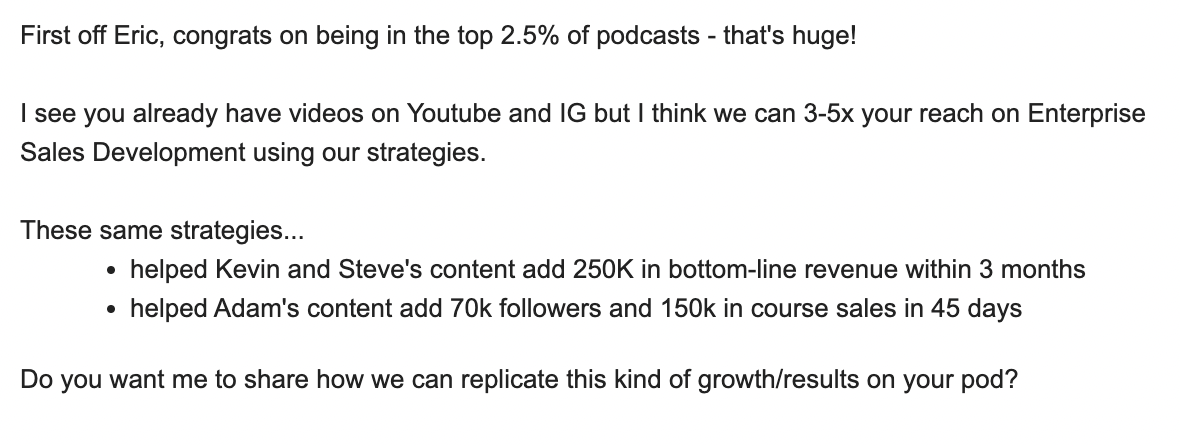Cold Email Strategies: The Power of Uncertainty
The Unsure Revolution: Why Confidence Could Be Killing Your Cold Emails

In the cutthroat world of cold emails, conventional wisdom screams: be bold, be confident, SELL. You've heard it from seasoned copywriters, marketing gurus, and every "expert" under the sun. They preach the gospel of asserting your product's superiority, shouting its praises from the rooftops, and dominating differentiation within the inbox.
But what if I told you this strategy, the backbone of countless cold email campaigns, is fundamentally flawed?

Let's face it, in the inbox warzone, you're not just another soldier. You're a stranger, armed with a debatably timed sales pitch, charging into the fortress of a busy, distracted executive. Think about it: how many self-proclaimed "best solutions" have bombarded your inbox this week? How many times have you rolled your eyes at the generic claims and forced enthusiasm? And how often have you deleted a pitch without reading past the first line because it sounded just like all the others?
Here's the truth: confidence alone doesn't cut it anymore. In today's oversaturated landscape, arrogance breeds indifference. Instead, I propose a radical shift – an unsure revolution in the way we approach cold emails.
Embrace the Power of Humility
In cold emails, taking an unsure tone means expressing humility, tentativeness, and openness to learning instead of making bold claims or assumptions. It's a shift from the traditional confident, "know-it-all" sales approach to a more collaborative and approachable style.
Why it works:
- Creates curiosity and engagement: Uncertainty sparks the recipient's interest and makes them want to know more. They wonder, "What exactly are they unsure about? Let me see what they have to say."
- Promotes dialogue and collaboration: By stating an open mind, you invite the recipient to share their thoughts and expertise, making the communication feel more like a conversation than a sales pitch.
- Builds trust and rapport: Vulnerability creates an impression of honesty and genuineness, making you more relatable and trustworthy. People are more likely to do business with someone they feel they can connect with.
How to achieve an unsure tone:
- Use hedge words: Words like "perhaps," "maybe," "possibly," and "seemingly" soften your statements and express caution.
- Ask questions: Instead of telling the recipient everything you know, ask questions to learn about their situation and challenges.
- Use conditional statements: Use phrases like "if I'm not mistaken," "I could be wrong, but," or "if this resonates with you" to show that you're open to correction and willing to adapt.
- Focus on empathy and understanding: Acknowledge their pain points and offer potential solutions without sounding pushy or boastful.

Examples:
Instead of:
"Used by over 1 million customers worldwide, our platform is the clear choice for streamlining your workflow."
Try:
"Having reached over 1 million users is humbling, but we understand each business has different workflows. Could you tell us about your specific areas for improvement?"
Instead of:
Discover [Product] by [Company]: The Ultimate BIOS Management Solution for MSPs
Try:
"Curious how MSPs like yours are tackling BIOS management?"
Instead of:
"Read how [Client Name] increased sales by 300% using our marketing automation tools!"
Try:
"Client triumphs like [Name]'s 3X sales inspire us, but every journey unique. How can we support yours with our tools?"
Instead of:
"Our software is the best on the market."
Try:
"We've heard great things from our partners about our software's ability to boost productivity. I'm curious to know if it aligns with your company's specific workflow needs."

Full Real-World Email Makeover:
Hey, I hope you are doing well.
I am [Sender], Sr Business Consultant at [Company]. I wanted to extend an opportunity to collaborate for a lead generation. Our Lead generation Campaign will help you create a great amount of prospect pool as we will strive and bring your target leads from the domestic and international markets.
We're dedicated to delivering precise, real-time information to our clients. Our commitment to quality is unwavering, as every lead we generate engages directly with one of our Software Advisors and undergoes a rigorous quality assurance process. We have successfully executed our Lead generation Campaign for some of our esteemed clients: Salesforce, Oracle, Keka, Callhippo, PeopleBox, and many more.
To know more about the benefits and process of collaborating, please schedule a call with me or send me an email.
Best,
[Name], Sr Business Consultant
A quick stab at cleaning up this example using an unsure tone:
Hi [Name],
I saw you tackling lead gen across borders, and it brought back memories of our own battles (let's just say having client brands like Salesforce and Oracle didn't magically solve everything!).
Every biz is different, so instead of throwing out solutions, I'd love to hear your specific lead gen roadblocks. Maybe we can swap war stories and brainstorm together?
Happy to jump on a call next week or just exchange emails - no pressure, just sharing battle-tested insights.
Best,
[Name]
Remember: Taking an unsure tone doesn't mean lacking confidence in your product or service. It's simply a different way of presenting yourself that focuses on building trust and engagement with the recipient. It can be a powerful tool for increasing response rates and ultimately converting cold emails into successful connections.
Other Good Cold Email Examples (Real-World Examples):





Hedge Words Primer:
Frequency:
- Occasionally
- Sometimes
- Often
- Generally
- Typically
- On average
Possibility:
- Maybe
- Possibly
- Might
- Could
- Seemingly
- Potentially
Degree:
- Somewhat
- A little
- To some extent
- Relatively
- Moderately
- In certain cases
Certainty:
- I believe
- I imagine
- It appears
- It seems
- In my experience
- As far as I know
Emphasis:
- Not always
- Not necessarily
- It's worth considering
- It's possible
- It's important to remember
- One thing to keep in mind
Additionally, you can use phrases like:
- I'd be happy to hear your thoughts on...
- I'm curious to learn more about...
- It would be interesting to explore whether...
- Let's see if there are ways we can...
Guidelines:
- Step off the soapbox: Instead of asserting what your recipient "needs," show genuine curiosity about their challenges. Ask questions, listen actively, and demonstrate a willingness to understand their unique situation.
- Ditch the superlatives: Leave the "best in the world" claims behind. Focus on showcasing the specific value your product or service brings to their specific problem. Tailor your message to their needs, not your ego.
- Befriend the "maybe": Uncertainty isn't weakness; it's an invitation to dialogue. Use phrases like "perhaps," "could be," and "if I'm not mistaken" to open doors for collaboration. Let the recipient be the hero of the story, not your pre-written sales script.
The Benefits of Unsure Tone:Remember: This isn't about lacking confidence in your product. It's about knowing your audience and understanding that in the crowded inbox, arrogance is a turn-off. By embracing the unsure tone, you open a door to genuine connection, trust, and ultimately, more successful cold emails.- Spark Curiosity: Uncertainty piques interest. When you don't shove your product down their throats, you engage their minds, making them genuinely want to know more.
- Build Trust: Humility and a willingness to learn foster trust. You're not a salesman anymore; you're a potential partner, someone who wants to understand their needs and offer solutions, not just sell snake oil.
- Promote Dialogue: By asking questions and showcasing open-mindedness, you turn a cold email into a conversation. The recipient feels valued, heard, and more likely to engage.
